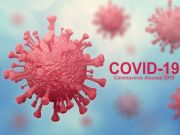
Children with cancer don’t have a higher risk of being affected by COVID-19 or of having severe symptoms, a new study finds. “We are encouraged by these latest findings that kids with cancer are not more endangered by COVID-19 and their symptoms are mild like in healthy children,” said study leader Dr. Andrew Kung, chair… read on >

















